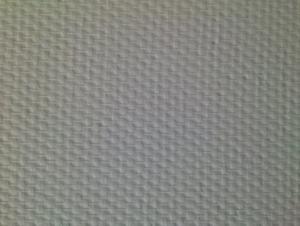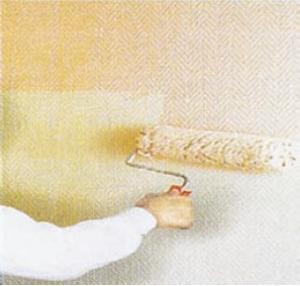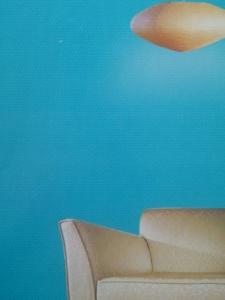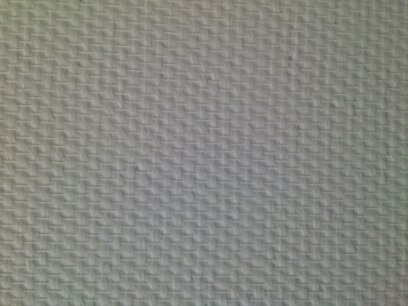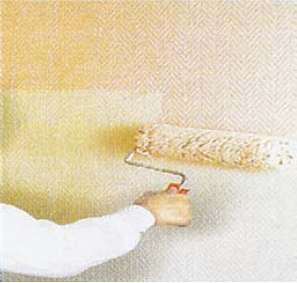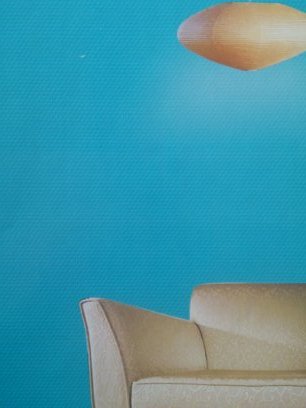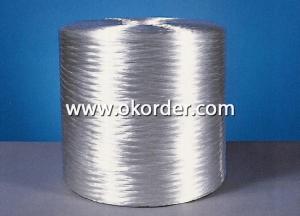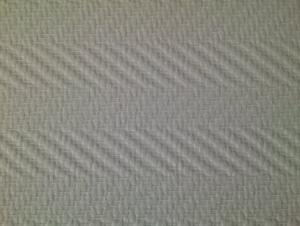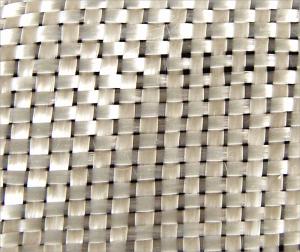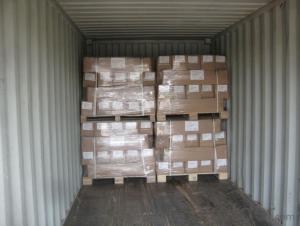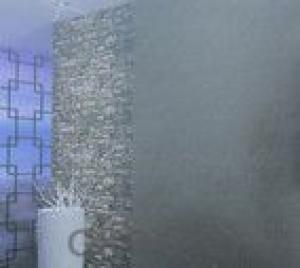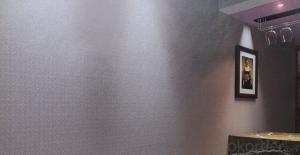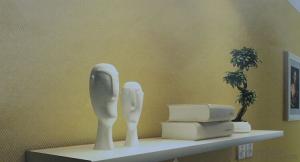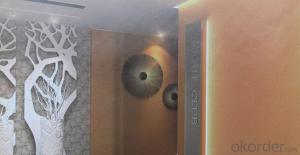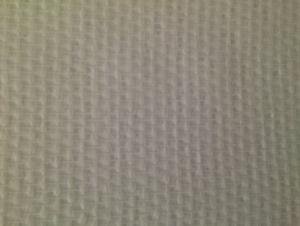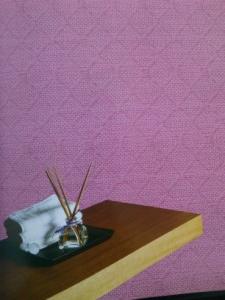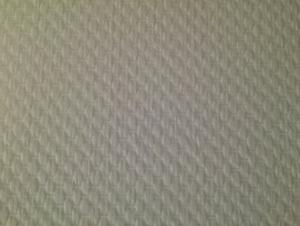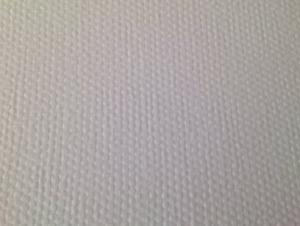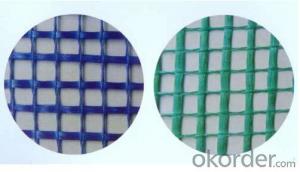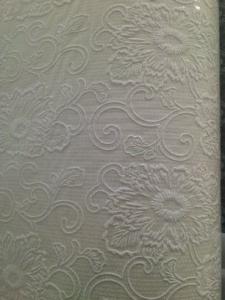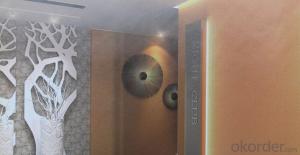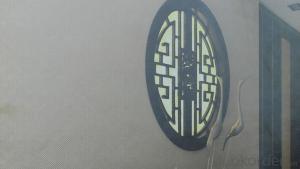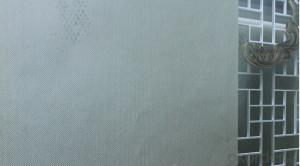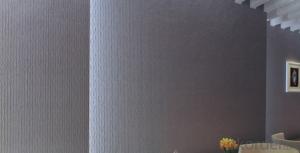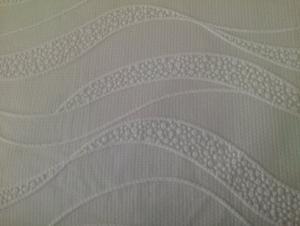Fiberglass Wallcovering Cloth - 120g/m2
- Loading Port:
- China Main Port
- Payment Terms:
- TT or LC
- Min Order Qty:
- 10000M2 m²
- Supply Capability:
- 1000000square meter/month m²/month
OKorder Service Pledge
OKorder Financial Service
You Might Also Like
Product Description of Fiberglass Wallcovering:
Fiberglass wallcovering cloth, that combines the versatility of paint, from latex to epoxy, with the strength and benefits of woven fiberglass textile
yarns to meet the most demanding wall finish requirements. Fiberglass textile yarns, as a kind of natural materials, are woven into various textures
and patterns and then treated with a natural starch binder for dimensional stability during the hanging process.
Advantages of Fiberglass Wallcovering:
* Environment Friendly
* Flame Retardant
* Air Permeability
* Shock Resistance
* Waterproofing
* Anti-corrosion
* Abundant Colors & patterns
Application of Fiberglass Wallcovering:
As a high-tech indoor decorating material, fiberglass wallcovering cloth is widely used in resident homes, offices and shops and even cinemas,
theatres, hotels and hospital facilities, air ports, office buildings, shopping centers and schools
Externals picture of Fiberglass Wallcovering :
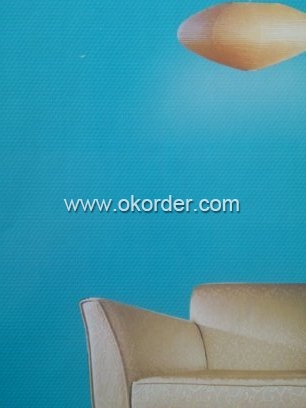
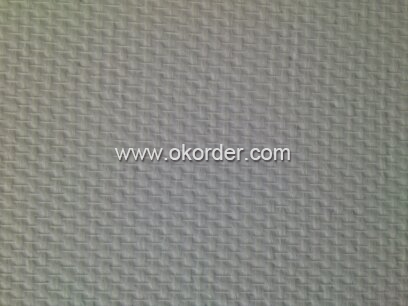
Packaging of Fiberglass Wallcovering :
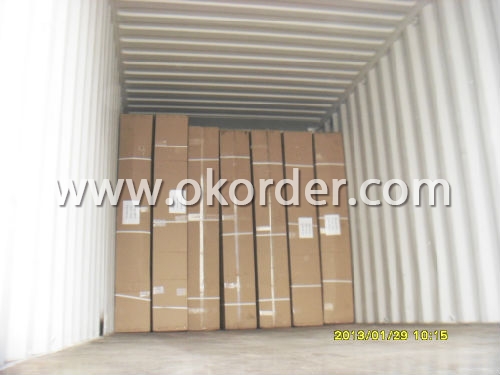
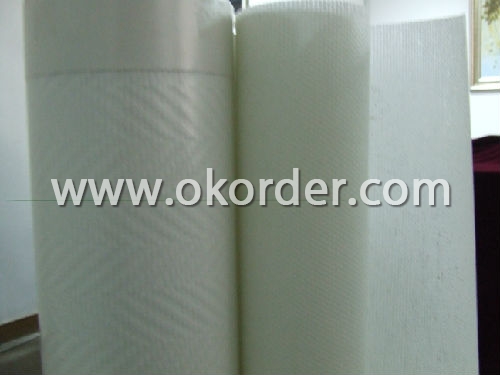
Production of Fiberglass Wallcovering :
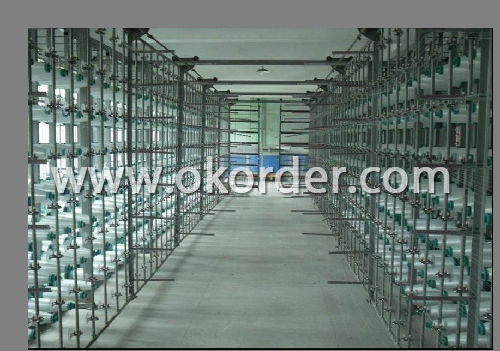
- Q: Does fiberglass wallcovering cloth reduce noise transmission?
- Yes, fiberglass wallcovering cloth can help reduce noise transmission. Due to its dense and fibrous nature, it absorbs sound waves, preventing them from bouncing off walls and causing echoes. This can effectively minimize noise transmission and create a quieter environment.
- Q: Is fiberglass wallcovering cloth suitable for use in basements or below-grade areas?
- Yes, fiberglass wallcovering cloth is suitable for use in basements or below-grade areas. Fiberglass is a durable and moisture-resistant material that can withstand the potentially humid and damp conditions commonly found in basements. It is also resistant to mold and mildew growth, making it an ideal choice for areas with higher moisture levels. Additionally, fiberglass wallcovering cloth is easy to clean and maintain, making it a practical option for basements or below-grade areas where cleanliness is important.
- Q: Is fiberglass wallcovering cloth eco-friendly?
- Fiberglass wallcovering cloth can be considered eco-friendly to some extent. Fiberglass itself is made from natural materials like silica sand, limestone, and soda ash, which are abundant and renewable resources. Additionally, fiberglass products can have a longer lifespan compared to other wallcovering materials, reducing the need for frequent replacements and minimizing waste. However, it's important to note that the production process of fiberglass cloth may involve the use of chemicals and energy-intensive manufacturing techniques. Some fiberglass manufacturing processes also generate emissions and waste that can be harmful to the environment. To ensure the eco-friendliness of fiberglass wallcovering cloth, it is crucial to consider the entire lifecycle of the product, including its production, transportation, installation, and disposal. Opting for manufacturers that adhere to sustainable practices, such as using recycled materials and reducing energy consumption, can further enhance the environmental benefits of fiberglass wallcovering cloth.
- Q: Can fiberglass wallcovering cloth be applied over existing wallpaper?
- Yes, fiberglass wallcovering cloth can be applied over existing wallpaper. However, it is important to note that the existing wallpaper should be in good condition and properly adhered to the wall. If the wallpaper is peeling or damaged, it is recommended to remove it before applying the fiberglass cloth. Additionally, any loose or raised seams should be re-adhered or repaired before applying the cloth. Applying the fiberglass cloth over existing wallpaper can provide added durability and strength to the wall surface, as well as help to hide any imperfections or texture from the previous wallpaper.
- Q: Does fiberglass wallcovering cloth prevent the growth of mold and mildew?
- Fiberglass wallcovering cloth is effective in inhibiting the growth of mold and mildew. Due to its non-porous nature and resistance to moisture, fiberglass is an ideal option for areas prone to mold and mildew, such as bathrooms and kitchens. Unlike traditional wallpaper or paint, fiberglass wallcovering cloth does not provide a conducive surface for mold and mildew to thrive. Moreover, maintaining and cleaning fiberglass cloth is effortless, further reducing the risk of mold and mildew formation. Nevertheless, it is essential to acknowledge that although fiberglass cloth aids in preventing mold and mildew growth, it does not guarantee complete prevention. Proper ventilation and humidity control are also vital factors in averting the growth of mold and mildew in any setting.
- Q: Can fiberglass wallcovering cloth be used in exterior architectural features or elements?
- Exterior architectural features or elements can indeed incorporate fiberglass wallcovering cloth. This material, known for its durability and resistance to weather conditions, is ideal for outdoor use. It is commonly employed in facades, cladding, and decorative components, as it can withstand harsh outdoor conditions. To strengthen and protect the fiberglass cloth from moisture, UV radiation, and other environmental factors, it is typically applied over a substrate and coated with resin. This combination creates a sturdy and long-lasting exterior surface that resists cracking, fading, and deterioration. Furthermore, fiberglass wallcovering cloth can be molded or shaped into various forms, allowing for design versatility and customization. Overall, this material is a reliable and practical choice for enhancing the aesthetic appeal and durability of exterior architectural features.
- Q: What are the installation requirements for fiberglass wallcovering cloth?
- The installation requirements for fiberglass wallcovering cloth typically involve a few key steps. First, the surface where the cloth will be applied should be clean, smooth, and free of any loose debris or contaminants. This may involve removing any old wallpaper, patching any cracks or holes, and sanding down any rough spots. Next, it is important to properly measure and cut the fiberglass cloth to fit the desired area. It is recommended to leave a small overlap at the edges to ensure a seamless finish. The cloth can be cut using a sharp utility knife or scissors. Once the cloth is cut, it should be soaked in warm water for a few minutes to activate the adhesive backing. The cloth should then be applied to the wall, starting from the top and working downwards. It is important to smooth out any air bubbles or wrinkles as you go, using a smoothing tool or a clean, damp cloth. It is also important to ensure that the cloth is properly aligned and straight, especially if using multiple pieces. Any excess cloth at the edges can be trimmed off once the installation is complete. After the cloth is applied, it is recommended to let it dry completely before applying any paint or other finishes. This typically takes around 24 hours, but can vary depending on factors such as temperature and humidity. Overall, the installation of fiberglass wallcovering cloth requires careful preparation of the surface, precise cutting and application of the cloth, and proper drying time. Following these installation requirements will help ensure a successful and durable finish.
- Q: Can fiberglass wallcovering cloth be used in healthcare facilities?
- Yes, fiberglass wallcovering cloth can be used in healthcare facilities. It is a durable and easy-to-clean material that can withstand frequent cleaning and disinfection. Additionally, fiberglass wallcovering cloth is resistant to mold and mildew, making it a suitable choice for environments that require high levels of hygiene, such as healthcare facilities.
- Q: Can fiberglass wallcovering cloth be used in conjunction with other wallcoverings?
- Yes, fiberglass wallcovering cloth can be used in conjunction with other wallcoverings. Fiberglass wallcovering cloth is a versatile material that can be applied as a base layer before applying other types of wallcoverings such as paint, wallpaper, or fabric. It provides additional strength and durability to the wall surface, making it an excellent choice for high-traffic areas or areas prone to damage. Additionally, fiberglass wallcovering cloth can help to hide imperfections on the wall surface, creating a smooth and even base for other wallcoverings. However, it is important to ensure that the other wallcoverings are compatible with fiberglass cloth and that proper installation techniques are followed.
- Q: Is fiberglass wallcovering cloth resistant to stains?
- Yes, fiberglass wallcovering cloth is resistant to stains. The material is designed to be durable and long-lasting, making it highly resistant to stains and discoloration. Its smooth surface prevents liquids from penetrating the material, allowing spills and stains to be easily wiped away without leaving any permanent marks. Additionally, fiberglass wallcovering cloth is often treated with a protective coating that further enhances its stain-resistant properties. This makes it a popular choice for high-traffic areas such as commercial spaces, schools, and healthcare facilities where stains are more likely to occur.
1. Manufacturer Overview
| Location | Shandong,China |
| Year Established | 1964 |
| Annual Output Value | |
| Main Markets | |
| Company Certifications |
2. Manufacturer Certificates
| a) Certification Name | |
| Range | |
| Reference | |
| Validity Period |
3. Manufacturer Capability
| a) Trade Capacity | |
| Nearest Port | |
| Export Percentage | |
| No.of Employees in Trade Department | |
| Language Spoken: | |
| b) Factory Information | |
| Factory Size: | |
| No. of Production Lines | |
| Contract Manufacturing | |
| Product Price Range | |
Send your message to us
Fiberglass Wallcovering Cloth - 120g/m2
- Loading Port:
- China Main Port
- Payment Terms:
- TT or LC
- Min Order Qty:
- 10000M2 m²
- Supply Capability:
- 1000000square meter/month m²/month
OKorder Service Pledge
OKorder Financial Service
Similar products
Hot products
Hot Searches
Related keywords
